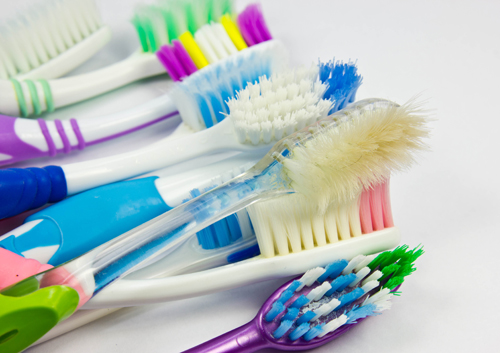May 20th, 2020

Since dental implants first started being implemented in the 1980s, they have been primarily made of titanium. Recent advances in implant technology have allowed dental implant manufacturers to shift from all-metal implants, to part-metal and part-ceramic implants, to the newer all-ceramic or zirconia implants.
Zirconia implants are made of high-impact resistant ceramic called tetragonal zirconia polycrystal (ZrO2+Y2O3). They remedy many of the issues and complaints doctors and patients have with traditional metal implants and have several advantages—let’s take a look at some of them.
Advantages of Zirconia Implants
- Do not cause allergic reactions – Although titanium is considered non-toxic, some people still have allergic reactions to titanium. Zirconia implants are inert, non-corrosive, and hypoallergenic.
- Have been used for decades in medical applications – Millions of patients have had zirconia used safely and effectively as the base material for their hip replacements. The zirconia used for medical applications also undergoes strict radiation monitoring to ensure its safety for use within the body.
- They are incredibly strong – Unlike titanium implants, zirconia offers a much higher degree of resistance to scratching, corrosion, and fracture. The aerospace industry even uses zirconia (ZrO2) due to its high resistance to heat and fracture. This all means a safer and more aesthetically pleasing result for the patient.
- One-piece design is more hygienic – Zirconia implants are a one-piece design, meaning there is nowhere for bacteria to build up or liquids to penetrate like with titanium implants. They are highly biocompatible (how a material reacts with the human body) which leads to healthier gums and no risk of corrosion.
- Implant margin is at gum not bone level – With titanium implants the margin (or gap between the implant and the tooth) is at bone level, which can lead to bacterial buildup since you can’t brush there. The zirconia implant margin, which is at gum level, allows you to brush and clean your implant and restoration regularly.
If you are in need of a restorative dental implant, it would be wise to consider zirconia due to its many advantages. It might not work in every situation, but feel free to discuss your options with Dr. Welmilya Francis-Davis or one of our Nassau staff members.
May 13th, 2020

If you're considering getting an implant, you'll most certainly have questions for Dr. Welmilya Francis-Davis. You might be wondering how a dental implant compares to a real tooth. Let's look at some of the differences between implants and natural teeth.
It should be noted that one of the primary goals of implant dentistry is to try to provide the same form and function as your natural teeth. However, with that in mind, know that an implant is not a tooth. An implant does not decay and does not have dental pulp or periodontal membrane like teeth.
An implant won't always work in every case, but they do have some great advantages when they are called for. Some advantages of an implant:
- Often last for decades without needing to be replaced
- Create a functional and aesthetically pleasing replacement for your missing tooth
- Don't require surrounding teeth for support
- Do not decay like natural teeth
- Can be fixed or removable
- Are able to replace single tooth or multiple teeth
There are downsides to implants where natural teeth win out. The disadvantages of implants include:
- Higher cost compared to traditional dentistry
- It's a surgical procedure which requires a period of healing afterward
- Fracturing of fixtures and loosening of screws can occur (only in about 5% of patients)
- Since there is no cushion between the implant and the bone, fracturing of crowns and bridges is more common with implants than with natural teeth, though this is rare.
It's best to speak with Dr. Welmilya Francis-Davis about your options regarding implants. Let us know what you want to achieve and we'll work with you as best we can to accomplish that. And don't hesitate to contact our Nassau office for further questions about the procedure.
May 6th, 2020

Dr. Welmilya Francis-Davis and our staff recommend that you replace your worn-out, germy toothbrush with a new one every three months. But most people either forget or resist getting rid of something that is still “working.”
Maybe if they had a few ideas for putting that old toothbrush to good use, more people would take our advice? To encourage good oral practices, we offer these ten fun things you can do with your used toothbrush:
1. Let your five-year-old budding Da Vinci create a masterpiece with some paint and your old toothbrush.
2. Scrub oily areas on your face with your toothbrush. The bristles are perfect for removing embedded dirt and oil that clogs pores.
3. Pamper your hamster by brushing his fur with an old toothbrush.
4. Dab a bit of Vaseline on the bristles and comb your eyelashes: instant glamour! Got dry, flaky lips? Slough away by using a toothbrush on your lips.
5. Remove the bristles: instant small plant stakes!
6. Old toothbrushes are great for spot-cleaning just about anything.
7. When nobody is around to scratch an unreachable itch on your back, turn that old toothbrush into your personal backscratcher.
8. Is your dog’s breath so bad that all your houseplants have died? Try brushing his teeth with your old toothbrush so that his kisses (and breath) are more tolerable.
9. Give your fish the cleanest tank in the neighborhood by scrubbing it with your old toothbrush.
10. Did you notice a few gray hairs sprouting from your hairline this morning? Old toothbrushes were made for touch-up dye jobs; works for dyeing your eyebrows, too!
April 29th, 2020

When you have dental issues or just need routine care, you may try to put off making an appointment at Comfort Smiles. Common reasons for procrastination are not having the time or fear of pain. Avoiding Dr. Welmilya Francis-Davis is not a good idea, though. Putting off dental care can turn small problems into large ones. Short appointments turn into long ones with significantly more work and expense.
What happens when you wait?
The small cavity that could have been filled easily has turned into a large cavity. The larger the cavity, the more work required to fill it. However, this is only a minor problem compared to more advanced issues. The minor toothache you are trying to ignore could be a small fracture or an abscess. Small fractures can sometimes be repaired, but if you wait and the fracture increases, you may need to get a crown.
An abscess can be treated in the early stages. Ignoring an abscessed tooth may lead to root damage and the need for a root canal. Infection can spread to other teeth, which multiplies the damage. These treatments will require more of your time than you would have spent taking care of the problem early.
Perhaps you are just putting off a routine cleaning. Even if you brush, rinse, and floss the way you are supposed to, you need a professional cleaning at Comfort Smiles. Plaque that is left behind hardens into calculus or tartar that you cannot remove by yourself. A build-up of calculus can also lead to gum disease.
Unfortunately, avoiding appointments due to a lack of time may mean that you have to give up substantially more time later on. You also can experience needless pain from tooth problems. It’s always best to visit Dr. Welmilya Francis-Davis for regularly scheduled cleanings and exams to ensure your smile stays healthy and beautiful.






